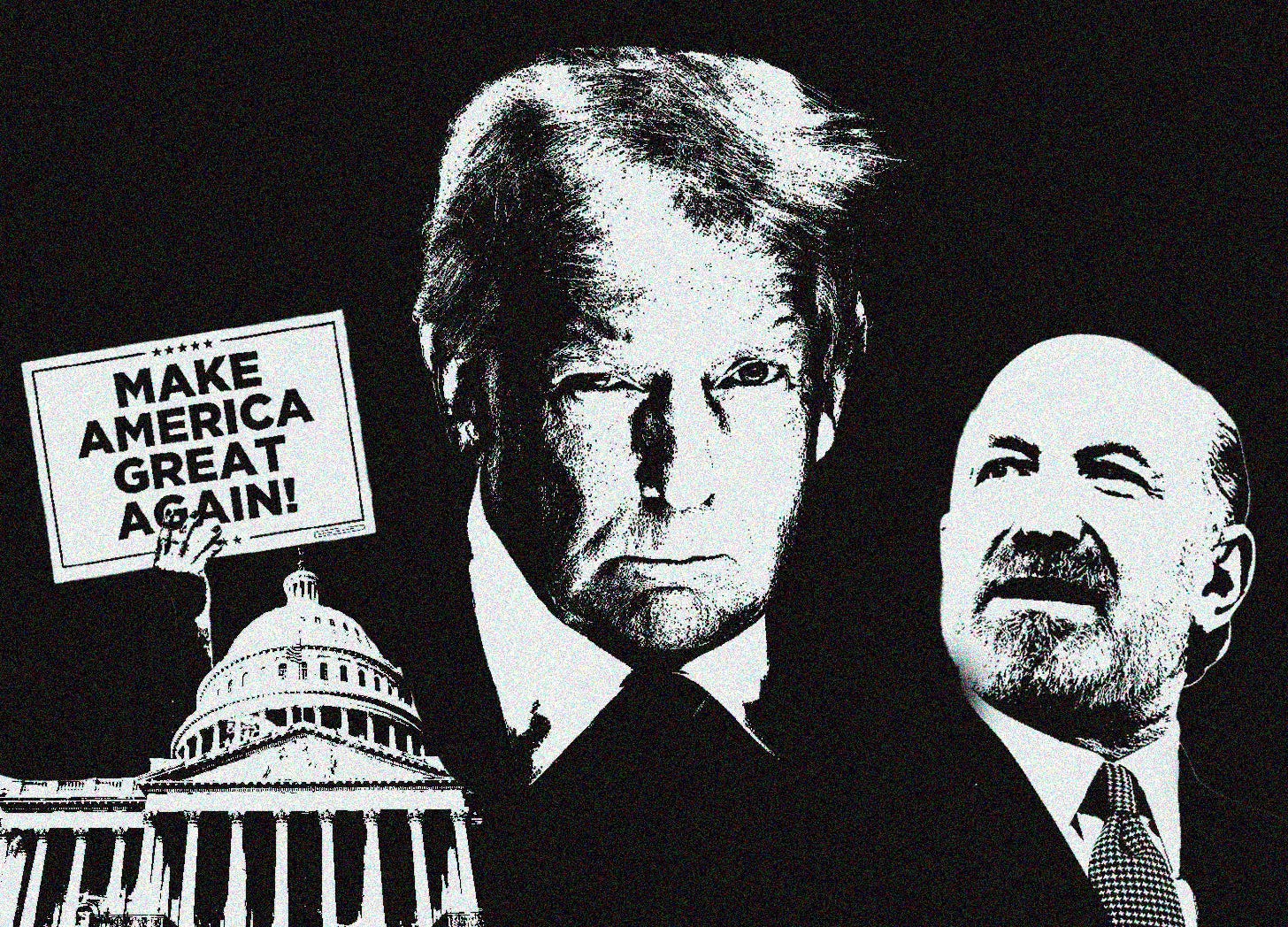America First and the Dismantling of Trade Diplomacy
Distinguished KU Law Professor Raj Bhala on the mechanisms, motives, and costs of America's protectionist turn
Trade, once governed by consensus, now faces an era of upheaval—an era that demands clarity from those who know the system best. Raj Bhala, an esteemed international trade law scholar at the University of Kansas School of Law, kicked off his inaugural Distinguished Professor lecture on September 15th by tackling the causes and consequences of today’s fraught trade realignments. Professor Bhala, a two-time recipient of the President’s Award for Excellence, possesses an extensive portfolio of published scholarship, acclaimed teaching, and professional experience while practicing law.
Drawing on his decades of work, he brings a uniquely comprehensive perspective to the challenges facing global commerce. It is this depth of insight that guided his new lecture, “Deceitful Destruction of International Trade Law: America First and Xenophobic Autarky.”1 He articulates a sharp interrogation of how nationalist policies and inward-looking economic strategies are reshaping the international legal order, framing his lecture around three central questions: how these rules are being broken, why such a rupture is occurring, and whether the system is worth preserving.
HOW ARE INTERNATIONAL TRADE LAW AND DIPLOMACY BEING SHATTERED?
Professor Bhala argued that in the first 200 days of Trump’s second administration, the United States has pursued an aggressive slate of unilateral measures that undermine both international and domestic legal commitments. He highlighted the “America Trade First” memorandum, which set in motion investigations into trade deficits and dumping practices. Bhala consolidates the ten steps the administration laid out in the memo into 3 categories.
First, those targeting Mexico, Canada, and China with the 1977 International Economic Powers Act for alleged failure to curb the flow of illegal immigration and Fentanyl; second, reciprocal tariffs against 160 trading partners based on bilateral imbalances, and, finally, sector-specific tariffs of up to 200 percent under the 1962 Trade Expansion Act. China, he emphasized, remains an exceptional case, with sweeping Section 301 tariffs from the Nixon-era Trade Act of 1974 weaponized to cover nearly three-quarters of Chinese imports. Together, these moves not only stretch statutory authority in some cases but also chip away at long-standing trade diplomacy.
WHY ARE TRADE LAW AND TRADE NORMS BEING SHATTERED?
The motives behind these policies, Bhala explained, blend legitimate economic and security concerns with deeper ideological currents. Onshoring jobs and industries is a reasonable pursuit, yet the strategy has veered toward what he calls xenophobic autarky: a rejection of global interdependence and the advantages of trading based on efficiency. Decades of frustration with deindustrialization and timid responses from policy makers have widened financial asymmetries and fed political resentment. National security, currency manipulation, and dishonest trade practices serve as further justifications for aggressive measures. Bhala noted that while national security is imperative, the aggressive nature pursued threatens to alienate our allies. Currency manipulation, he reminded the audience, is already addressed through international mechanisms like the IMF. As for fraudulent relabeling of goods to conceal their true origin, he argued that such violations reflect enforcement failures and are further encouraged by harsh restrictions. For Bhala, these rationales mask a deeper hostility to cooperation; a worldview that sees trade not as a path to peace but as a battleground of winners and losers.
ARE THESE RULES AND NORMS WORTH PRESERVING?
Bhala’s answer: an unequivocal yes. The international trade system, though imperfect, anchors the United States’ economic vitality, soft power, and security alliances. To dismantle it is, in his view, self-defeating. He underscored that rules like most-favored-nation treatment and tariff bindings, principles once championed by America, now risk abandonment. The costs are already visible: An increasing Consumer Price Index, strained diplomatic relationships, and weakened trust in U.S. commitments. He pointed to the Panasonic electric vehicle battery plant in Kansas, which relies on Chinese graphite, receiving a 93% tariff rate, potentially adding another $1,000 to the cost of each battery. For Bhala, examples like this show how protectionist zeal erodes the very economy it claims to defend.
CONCLUSION
Ultimately, Bhala warned that “America First” is not just a policy slogan but a trajectory toward isolation. By dismantling trade law at the multilateral, bilateral, and normative levels, the United States risks forfeiting its credibility and undermining the cooperative foundations that have supported prosperity and peace since World War II. Painting an image for the audience, Bhala quoted the late Pope Francis: “We live not in an era of change, but rather a change of eras.”




